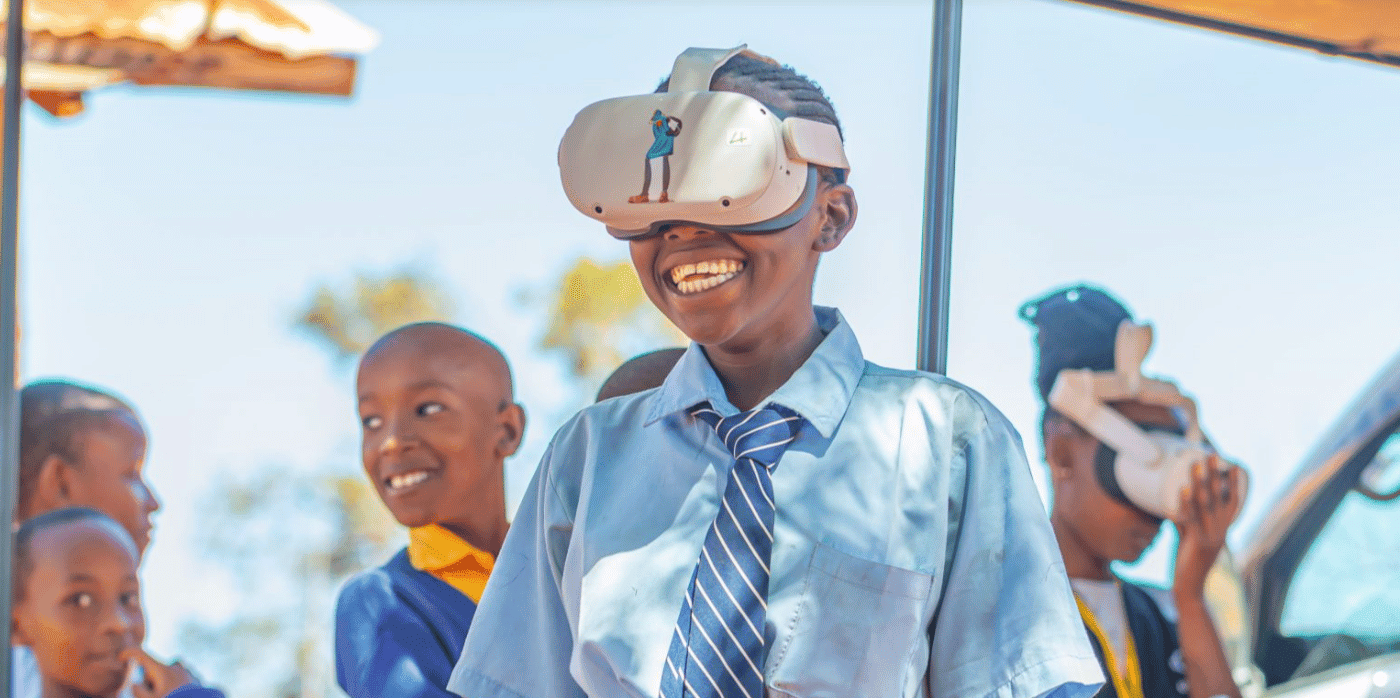Could VR content boost empathy for the environment?

Spotted: It’s vital that young people learn about global warming and the importance of living more sustainably. Without climate change literacy, many won’t be able to adapt to the economic and environmental impacts of climate change. This is especially the case in Africa, where countries are disproportionately vulnerable to climate change. Now, one startup is changing how young people learn about the dangers of climate change and plastic pollution through virtual reality (VR).
Ukwenza VR is a startup based in Kenya that offers educational VR content for classrooms and extracurricular learning. The startup’s VR experience transports students to realistic digital simulations of environments affected by plastic pollution and climate change. Students witness virtual representations of polluted water bodies, littered streets, and devastated habitats in Kenya and beyond, showing them the impact of plastic waste on marine life, land animals, and human health through the VR headsets.
The startup works with schools and educators to create and deliver content that meets learning standards that serve the community. Ukwenza mainly focuses on schools from low-income areas that cannot access such digital opportunities – where communities are most affected by plastic pollution and accumulated sewage and garbage.
Leveraging corporate social responsibility (CSR) programmes and other funders, Ukwenza can deliver VR experiences to public schools that would otherwise be unable to afford them. In private schools, by contrast, Ukwenza works with parents who pay a subscription for students to access the content.
As the world becomes increasingly environmentally conscious, it’s essential that young people grow up with an awareness of why and how they can also make a difference. Springwise has spotted many innovators finding ways to educate young people, including by using Minecraft and fairytales to better explain sustainability issues.
Written By: Anam Alam


